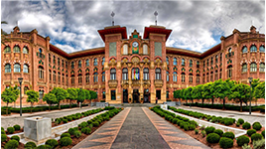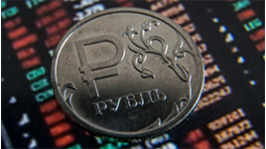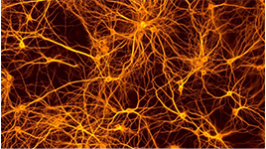Неэргодическая экономика
Авторский аналитический Интернет-журнал
Изучение широкого спектра проблем экономики
На английском языке
The article presents a simple model of economic growth based on the description of the dynamics of fixed capital formation. The main characteristic of the obtained fundamental equation of economic growth consists in an explicit link between the indicators of the GDP growth rate and the level of return on equity which allows not only obtaining the T. Piketty inequality, but also strictly determining the conditions for its implementation. The peculiarity of the fundamental equation of economic growth is in the postulation of the primacy of the capital circulation process which can provide an economic growth regime under certain conditions. The main difference between the author’s model and earlier constructions is the aggregation of most growth factors into one parameter. It is the profit rate (return on equity) which acts as the main driver of economic expansion. To strengthen the explanatory power of the fundamental equation of economic growth, the author considers two economic sectors – ordinary (with a low return on equity) and special (with a very high return on equity).
26.03.2021
The article considers the influence of the complexity of the social system on the growth of financial costs for the maintenance of the central management system. The subject of the article is Professor Dmitry Sorokin’s theory that Russia cannot be a world technological leader due to objective reasons: a large territory, a severe climate, a multinational and multi–confessional composition of the population. These conditions predetermine a strong power vertical and increased financial costs, leading to the bureaucratic despotism and worse effectiveness of market innovation mechanisms. The relevance of the problem is in the need to clarify the management capabilities and limitations of regimes with strong centralized power. This issue is becoming more urgent due to the fact Wagner’s law, which requires faster growth of public expenditure compared to the economy, has ceased to operate. The article aims to theoretically illustrate and to test the theory by D. Sorokin. On this purpose, the authors built a simple theoretical model of economic growth with an institutional factor reflecting the properties of the control system.
08.02.2021
Shifts in the global competition in the market of world–class universities (WCUs) are analyzed; the long-term restructuring of this market is considered in three geopolitical centers – the United States, Europe, and Asia – over the past 18 years of the 21st century. Nine of the most authoritative global university rankings were used as an information base. Calculations show that even though the positions of American universities in the top lists of world rankings are weakening, giving way to European and Asian universities, the United States continues to maintain leadership in this area. However, the authors’ expert forecast makes it possible to say that, if the emerging trends continue, by 2030 the number of WCUs of Europe and the United States in the Top 100 of many global ratings can be equalized, leading to a kind of Euro-American parity in the higher education sector. According to the authors, the desire of countries to create their own WCUs is a positive trend in terms of the development of global science.
29.09.2020
This study tests the hypothesis that Russia’s economic sectors have different sensitivity to tax burden. Econometric models are built to explore the relationship between production in different sectors and the tax burden on these sectors. We use employment growth, labour productivity growth and world oil prices growth as control variables; to neutralize crisis effects we introduced a binary dummy variable. A peculiar feature of our models is that we build a certain a priori non–linear fiscal aggregate, which appears as one variable in an econometric dependency and comprises one or two exogenous parameters.
20.09.2020
Financial University under Russian Federation presented own comments to «Forecast of Social and Economic Development of the Russian Federation for 2019–2024». It is very difficult to assess the validity of the quantitative parameters since the methodology and methods for the Forecast used by the authors are not known (indirect indicators point that it is based on the current trends in the Russian and world economies). First of all, the assessment of the Forecast was carried out from the point of view of its compliance with the goals of social and economic development as defined in Decree of the President of the Russian Federation dated 07.05.2018 No. 204.
11.09.2020
The paper reviews Russian and foreign research on modern ways to boost regional economic growth on the example of regional development institutions. We have chosen project management and regional development agencies as the most promising institutions for regional development. The growing interest in project management is confirmed by the data of the international database ScienceDirect, in which the number of articles on this topic for 1996–2019 was 19.5 thousand, and their annual number has increased 3.8–fold during this period. There is a similar trend in Russia: according to the electronic library eLIBRARY.RU the number of articles on this topic for the period from 2000 to 2019 has increased 87.5–fold, and their total number for this period was 1.2 thousand. Our main research method is cross–country comparative analysis. We investigate advantages and disadvantages of project financing on the examples of the Sydney Opera House (Australia), the Olympic Stadium in Montreal (Canada), the Concorde supersonic airliner (France—UK), the Suez Canal (Egypt), the Hubble Space Telescope (USA—EU), the Humber Bridge (UK). While studying international experience of regional development agencies, we have classified them into three types: agencies for ensuring regional leveling within the country (Scotland, Australia, Canada); agencies for ensuring economic leveling within an international association of countries (EU—Poland, Romania, Portugal); agencies that help countries join the world’s leading nations on the basis of the innovative economy (China, Malaysia, Botswana). A summary analysis of the works that study the activities of regional development agencies has allowed us to present the institutions under consideration on a system–wide basis and to identify their weak and strong points that should be taken into account in the development of this tool that helps enhance economic growth in Russia’s regions.
21.07.2020
The essay represents Nietzsche’s theory of the Eternal Return in simultaneous parallel with the study of an Over-man. It is shown that in his constructions Nietzsche tried to rely on quantum physics. However, its modern conceptions contradict the Theory of the Eternal Return. It is also discussed the comparison of Nietzsche’s theory and other earlier philosophical studies of Heraclitus and Solomon. It is justified that despite its disadvantages, the Theory of the Eternal Return includes a great potential of the inexhaustible optimism.
12.06.2020
The results of two waves of identification of world–class universities (for 2017 and 2019) are considered, giving a geopolitical “snapshot” of the market of leading universities of the world. It is shown that United Europe is forging ahead into the lead, while Asia and the United States have worsened their positions. It is economic and cultural factors that underlie success in the formation of global universities. The economic precondition is the presence of global high-tech companies in a country, the number and strength of which determine the number and strength of world–class universities; and the cultural precondition is a wide spread of “the philosophy of collaboration”, which implies intensive sharing of experience between universities both at the domestic level and between countries through numerous forms of collaboration–international leagues and unions, regional consortia and groups, and professional associations and alliances.
22.11.2019
The article proposes a hybrid model for inflation projection that combines econometric and neural network models. At the same time, both factor variables and market markers of consumer price index growth are used as explanatory variables. It has been shown that such an approach makes it possible both to maintain the theoretical fullness of the model and to ensure high accuracy of calculations, which is unattainable when using only one type of model toolkit.
27.09.2019
The ‘turnpike hypothesis’ proposed in this article suggests that the trajectory of GDP growth rates is a ‘turnpike‘, which attracts tax revenues of any type. A significant deviation of the rates of tax revenue growth from the turnpike means that this tax has grown unresponsive to the dynamics of the global tax base – GDP. To test this hypothesis, the authors introduce the indicators of surplus return and volatility of tax revenues, which leads them to narrowing the definitions of such terms as budget orientation and efficiency of taxes. To analyze the behaviour of economic agents, the authors construct econometric dependencies of three indirect taxes (VAT, customs duties and excise taxes) on the tax rate (tax burden), GDP and the population income. For the VAT, the tax burden was its nominal rate; for excise taxes, the share of excise taxes in the retail turnover; for customs duties, the share of customs duties in the foreign trade turnover.
05.09.2019












